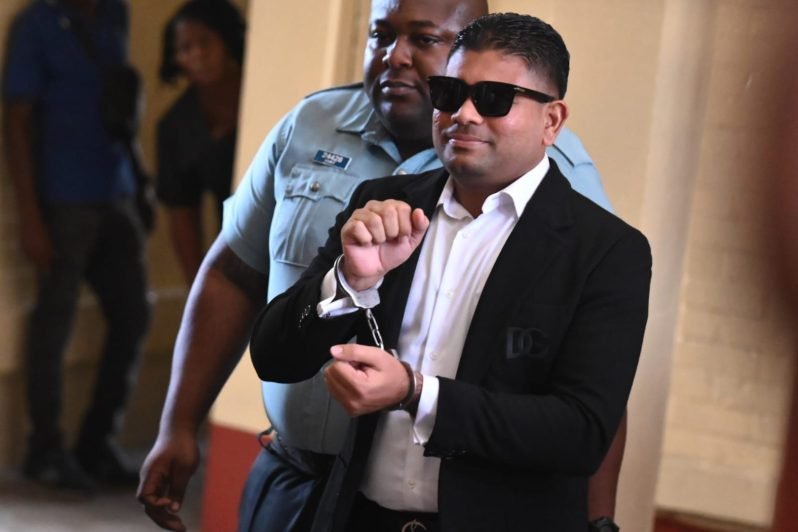Azruddin Mohamed, who has no formal education according to his two uncles in the USA and is now running as a presidential candidate, faces criticism after a brazen and illegal intrusion into the Indigenous community of Wikki Calcuni on the Berbice River, drawing strong condemnation from Toshao Kevin Seegolam and villagers alike. What was supposed to be a peaceful sports day turned into a tense confrontation after Mohamed and his entourage allegedly stormed the village without permission.
In a firm rebuke, Toshao Seegolam clearly stated that Mohamed’s presence was neither welcome nor legal: “They were not invited. I asked them to leave — they refused.”
Azruddin Mohamed, known by the public as the Lamborghini boy, who doesn’t even know the meaning of inflation, was already in trouble with serious accusations from U.S. law enforcement. OFAC and the FBI sanctioned him for money laundering, gold smuggling from Venezuela, dealings with Maduro, and links to cocaine cartels in Colombia, as well as fixing invoices. His reputation took a hit when he openly violated Guyana’s Amerindian Act of 2006, which requires political figures to get approval from the Village Council before entering Indigenous lands for political activities.
This wasn’t just an oversight — it was a deliberate effort to push a political agenda without respecting the rules, culture, or authority of the Wikki Calcuni community.
A now-viral video captures the moment tensions boiled over. As Mohamed’s supporters aggressively waved flags in villagers’ faces, Toshao Seegolam reached his breaking point. One clip shows him grabbing a flag from a supporter and stomping on it. When questioned about this, the Toshao didn’t hold back: “It was unacceptable. They came here to push their agenda and ignored our rules.”
Mohamed and his group’s actions were not only provocative — they showed arrogance and a sense of entitlement. According to Seegolam, Mohamed “never sought permission, never got permission, and still refused to leave when told.”
This isn’t just about a flag or a sports day. It’s about respect, legality, and basic decency—all of which Mohamed ignored. Seegolam, echoing the voices of many Indigenous leaders across Guyana, reminded political operatives of their duty to respect Indigenous sovereignty: “Any political person who wants to come must do it the right way — write to the Council, get approval. Don’t bully your way in.”
What’s even more disturbing is Seegolam’s claim that most of Mohamed’s entourage weren’t even from the community. “It wasn’t our people — they brought in people from outside,” he said, suggesting that the visit was more of a staged political stunt rather than genuine outreach.
Mohamed’s reckless actions raise serious questions about his leadership style and motives. Suppose he cannot follow simple legal procedures or respect the rights of Indigenous citizens during his campaign. What kind of presidency does he envision — one based on coercion, neglect, and disrespect?
This isn’t the first time Azruddin Mohamed’s name has been associated with controversy. However, this recent incident reveals a deeper, more troubling pattern: a refusal to follow the rules, even when those rules are meant to protect the rights and dignity of Indigenous peoples.
In a final warning, Toshao Seegolam delivered a clear message to all politicians: “If you want to campaign here, respect us. Seek permission and follow the law. Don’t just show up and expect to do as you please.”
Azruddin Mohamed has shown Guyana—especially its Indigenous communities—that he is willing to use aggressive tactics and show disrespect to the people he aims to lead. In doing so, he has disqualified himself not only in the eyes of Wikki Calcuni but also in the hearts of all Amerindians who value justice, respect, and the rule of law.





